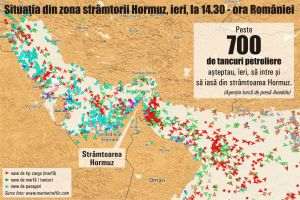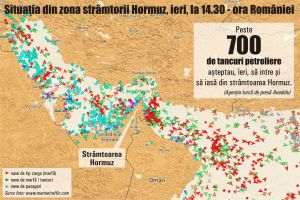The EUR/RON exchange rate seems to have been used again as a political weapon in a confrontation between president Traian Băsescu and the government led by Victor Ponta, according to some opinions expressed under the protection of anonymousness and reported in the media. This time, the leu (Romanian for lion) seems to have switched sides to the Govenrment, after it seemed to be siding with the president in the summer of 2012.
Yesterday, the leu fell to a two month low, against the Euro. The official exchange rate announced by the National Bank of Romania (NBR) was 4.4684 lei/Euro, after president Băsescu announced on Monday night that the won't approve the memorandum of understanding signed with the IMF.
Analysts that preferred not to disclose their names said that a state-owned bank, CEC Bank or EximBank, has intervened on the currency market, buying Euros, to weaken the leu, at the request of the NBR. According to them, this action was an attempt to put pressure on the president, to get him to sign the memorandum, in the meeting that he had with the prime-minister, the minister of Finance, Daniel Chiţoiu, the delegate minister for the budget, Liviu Voinea, and the governor of the NBR, Mugur Isărescu. Traian Băsescu did not give in, however, and last night stood by the position he had announced one day before.
Both banks denied the accusations that were made against them.
The representatives of CEC Bank told us that the lender yesterday had a low volume of transactions on the currency market, both in terms of the number of trades, as well as when it comes to the number of trades.
The officials of EximBank had a similar position, which mentions that yesterday, its trades accounted for less than 3% of the market. The bank's approach when it comes to risk is a cautious one, as the currency policy, which is aimed first and foremost at squaring the positions from trading activities, discouraging monetary speculations, according to them.
Yesterday, EximBank had a short position on the currency market, which means that sales of foreign currencies against the leu on the interbank market exceeded the purchases, the press release of the bank states.
"Under these circumstances, it is impossible for the currency transactions conducted today (ed. note: yesterday) by EximBank to influence the evolution of the exchange rate, and its name is associated in a tendentious manner with the fluctuation of the exchange rate registered on the interbank market", the document claims.
It is not the first time that the Central Bank is accused by the media of intervening on the currency market, to weaken the leu, in order to influence the decisions of the authorities.
Last summer, when, amid the suspension of president Băsescu, the exchange rate neared 4.65 lei/Euro, some publications claimed that the NBR tried to help the president, by inducing the impression that the delay in his return to office is heavily affecting the exchange rate.
On the interbank market, the leu weakened yesterday, rising to almost 4.4780 lei/Euro, by mid-session, up over 3.5 bani compared to the opening level. Turnover was also rising, as the players were betting on the depreciation of the leu in the short-term, as a result of the suspension of the agreement with the IMF, according to dealers.
They claim that the market was quiet on Monday night, as well as on Tuesday morning, but around the time when the NBR posts the quotes, a move suddenly occurred. "The Romanian market is not very deep and it doesn't take much money to generate a move like that", the traders said.
Another dealer said, quoted by Hotnews: "I don't want to outright suggest that this is how it happened, but in my opinion, a State entity entered the market on Tuesday and weakened the leu, probably for political purposes. It is possible that it was a ministry or a state owned bank that made this move on the leu, perhaps even the Central Bank that bought foreign currency in order to set it aside for the repayments of the international lenders, but it doesn't seem to be a move that fits within the logic of the market anyway ".
Market sources told us that in the second half of the session, the quotations fell towards 4.46 lei/Euro, and volume fell as well.












































